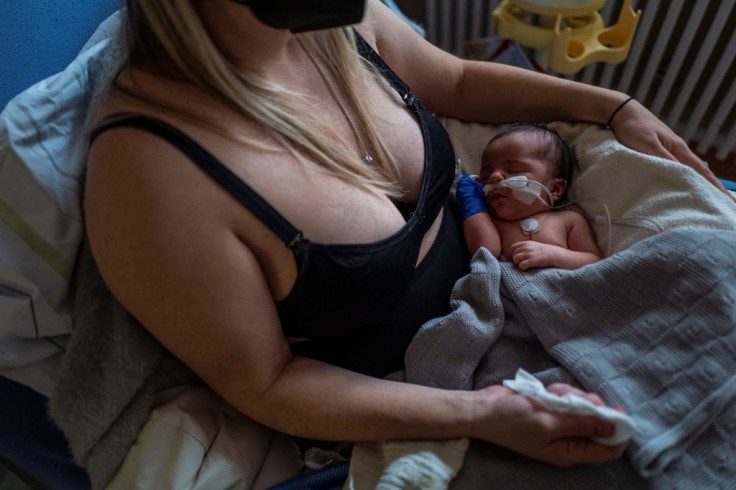
The Centers for Disease Control and Prevention (CDC) have issued a critical advisory, warning about high RSV hospitalization rates among young children in Florida and Georgia.
This alert comes alongside the CDC's endorsement of new preventive treatments, including the Beyfortus vaccine, aimed at combating this respiratory illness.
CDC Signals Rise in RSV Hospitalizations, Especially Among Infants
The CDC's recent data underlines a concerning escalation in RSV hospitalizations, particularly in Southeastern states.
These high RSV hospitalization rates among the young are particularly alarming given that RSV is the leading cause of hospitalization in the U.S. for infants under one year.
The CDC has communicated through its Health Alert Network advisory that such regional spikes generally predict nationwide rises in RSV activity, spreading north and west over the subsequent 2-3 months.
RSV is known to target the lower lungs, and in babies with tiny airways, this virus can cause the lungs to fill with mucus, thereby making breathing difficult. In the United States, it ranks as the primary reason for hospital admissions among infants who are less than a year old.
While young children are disproportionately affected, RSV also has a severe impact on seniors, leading to an estimated 60,000 to 160,000 hospitalizations annually for adults aged 60 and older.
New Preventive Measures: Beyfortus Vaccine and More
According to the CDC, healthcare providers should prepare to administer new immunizations, including the Beyfortus vaccine, as soon as they become available.
According to information from the CDC, RSV rates started to climb in southern states towards the end of July and have increased by over two-fold in the last month, although they haven't reached the high levels seen in the previous season.
For many doctors, the last RSV season in the U.S. was among the most severe they can recall. The agency is urging healthcare providers to offer new vaccines to infants and individuals over 60 as soon as these options become available. Beyfortus, a new monoclonal antibody, is expected to be available in early October.
In addition to the Beyfortus vaccine, the CDC indicates that two new RSV vaccines for seniors are now available, albeit potentially requiring a prescription and not necessarily being covered by insurance. When not covered, these vaccines could cost around $300.
The CDC further suggests that healthcare providers should discuss other available vaccines for respiratory infections, including flu shots and updated COVID-19 vaccines that are expected to be available shortly.
Read Also: Texas's New Law Mandates Child Support Payments From Drunken Drivers Who Cause Parental Deaths
Triple Threat of Respiratory Infections This Fall and Winter
The CDC advises physicians to be vigilant in testing high-risk patients showing respiratory symptoms for COVID-19, RSV, and influenza to help guide treatment decisions.
These three respiratory infections are expected to circulate concurrently over the fall and winter, posing a triple threat that could severely strain hospital capacities.
People at greatest risk include those with underlying medical conditions, pregnant individuals, and those who are very young or old.
With high RSV hospitalization rates likely to continue rising, especially among vulnerable populations, the CDC's endorsement of the Beyfortus vaccine and other preventive treatments is a timely call to action for healthcare providers and families alike.